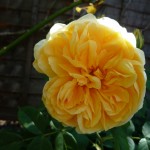 Listening to a jazz radio station as we made dinner, I was surprised to hear the announcer describe every track as ‘a song’, even though the programme was a sequence of purely instrumental tracks. ‘What’s your next song?’ he kept saying to his guest, who’d reply without batting an eyelid, ‘My next song is a great one for saxophone, bass and drums’, or whatever.
Listening to a jazz radio station as we made dinner, I was surprised to hear the announcer describe every track as ‘a song’, even though the programme was a sequence of purely instrumental tracks. ‘What’s your next song?’ he kept saying to his guest, who’d reply without batting an eyelid, ‘My next song is a great one for saxophone, bass and drums’, or whatever.
I can only imagine that calling everything ‘a song’ is a habit provoked by iTunes, where everything seems to be labelled a song. But to me a song is sung by a singer. If there’s no singer, then it’s not a song but something else: a piece, a track, a number, a movement. That a song is something you sing seems something very ancient and basic. What next: will someone who plays ‘a song’ on the piano be called ‘a singer’?
To call an instrumental piece ‘a song’ seems almost like calling a slice of bread ‘a drink’. No doubt historians of language will say that if enough people call an instrumental piece a song, then ‘song’ will become standard usage, and soon nobody will think a thing about it. But as far as I’m concerned, we’re not there yet.




I don’t know what was played in this particular jazz programme, but it is true that in the jazz repertoire there exists an enormous number of songs, very often played by groups without a singer. From ‘Saint Louis Blues’, ‘When the Saints go Marching in’ in the traditional domain right up to Archie Shepp & Horace Parlan playing, magnificently, ‘Nobody Knows the Troubles I’ve Seen’, ‘Deep River’, ‘Sometimes I Feel like a Motherless Child’ and maybe 15 other ‘songs'(2 CDs) on tenor or soprano saxophone and piano. Eric Dolphy played a wonderful version of Billie Holliday’s ‘God Bless the Child’ on bass clarinet and it is true that the songs she sang have never ceased to be a source of inspiration for jazz musicians. George Gershwin is also memorable for his songs played by instrumentalists.
In the classical repertoire we only have Mendelssohn and his ‘Songs without Words’…
The Nocturnes of Chopin and Field are also often “songs without words” — cantabile melodies, played in repeated stanzas, with novel accompaniments similar to the piano parts in lieder of the same period.
And Satie’s Gymnopedes and Debussy’s Preludes are not a million miles away from these styles either.
Steve, I know what you mean about jazz standards being derived from songs, but my point was that pieces of music which have no connection whatsoever with vocal music or lyrics are nevertheless now called ‘songs’. At a solo piano recital in a university not long ago, I noticed that the students referred to the different pieces in my programme as ‘songs’, even when they were movements of sonatas, or suites, or nocturnes or whatever. ‘Song’ has become an all-purpose word for any piece of music.
Yes, now that I’m living in California, I hear this usage all the time and it drives me batty. I’ve tried to reeducate my students, but it can be an uphill battle when they hear this usuage everywhere.